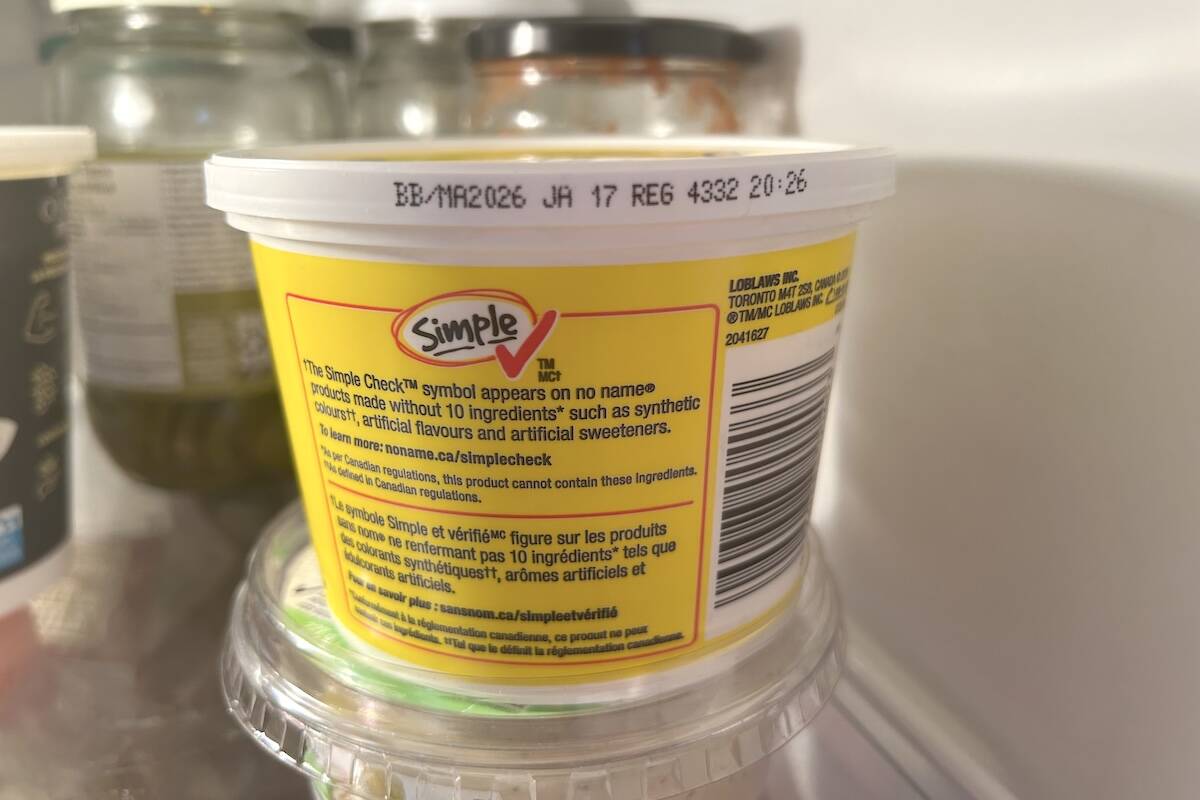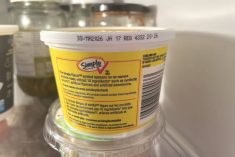Happy ending Canning and cooking courses were a limited success, but organizers found a new market for their products
What started as an initiative to increase economic development here has now become a successful and thriving preserving business.
The 100 km Kitchen Party, now known as the 100 km Kitchen Company, was conceived in 2009 by Kelly Starling, the director of economic development in Brazeau County. She started the project as a way to diversify in an area heavily dominated by oil and gas employment. The project was designed to connect canners with area growers to create food that could be sold locally.
The group created an Eat Local Goodness directory, listing growers within a 100-km circle around Drayton Valley. By the end of three years, the directory included 50 listings and had been distributed at numerous farmers’ markets. “It was a fantastic way to reach people,” said Margarita Pischke, a learning resources co-ordinator for the project.
Read Also

Best before doesn’t mean bad after
Best before dates are not expiry dates, and the confusion often leads to plenty of food waste.
The directory was unable to continue due to lack of funding, and canning and cooking courses for the area were a limited success.
However, the processing end of the business took off. During the second year, the 100 km Kitchen Party sold 1,800 jars of preserves and the third year they sold 2,800. The women involved decided it was time to go into the preserving business.
“We found people understand the value of supporting local growers and what’s in the jar, but they don’t have the time to do it themselves,” Pischke said. “Drayton Valley treats us very well and there’s a good source of money and people are willing to spend their money on a well-made, good, local product.”
About 95 per cent of the ingredients in the preserves are grown and sourced locally. “If we don’t have the suppliers, we just don’t make it,” she said.
The three women produce their jams and jellies in local community halls during the peak season of September. “We can do about 300 to 400 jars a day,” said Pischke.
One of the biggest sellers is a horseradish jelly, which goes well as a meat glaze, on grilled cheese, bologna sandwiches or with fried onions. Products include jams and jellies including sugar-free jams, relishes, pickles and gourmet jellies.
After a few setbacks, the three women incorporated as a company in September 2011, with the intention to run themselves using a co-op framework. The three women in the co-op are Margarita, her sister-in-law Patricia Pischke and Kathryn Pratt. The women now sell in a variety of farmers’ markets and have created their own nutritional label which allows them to sell in stores.















